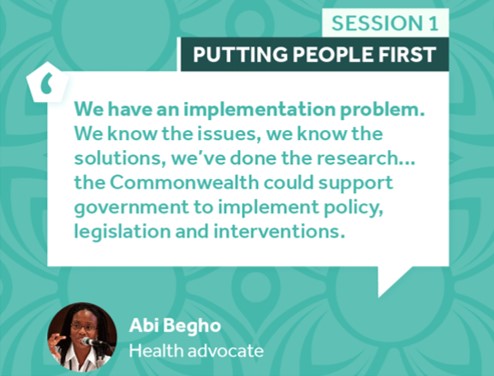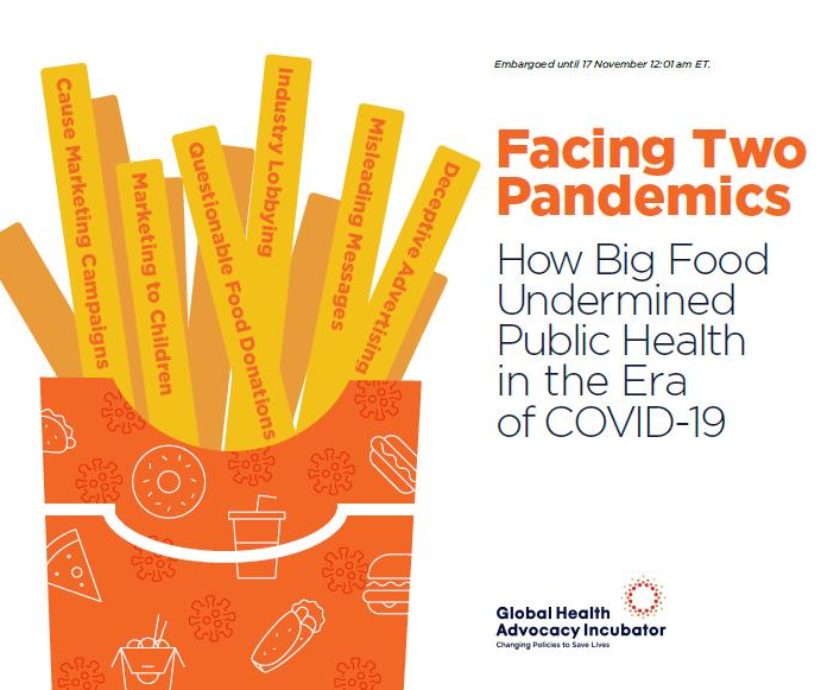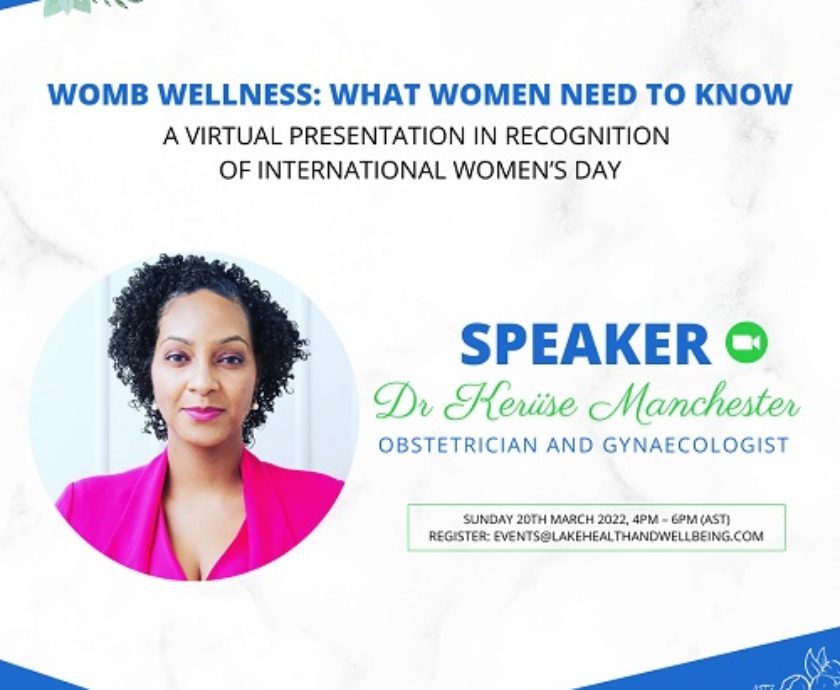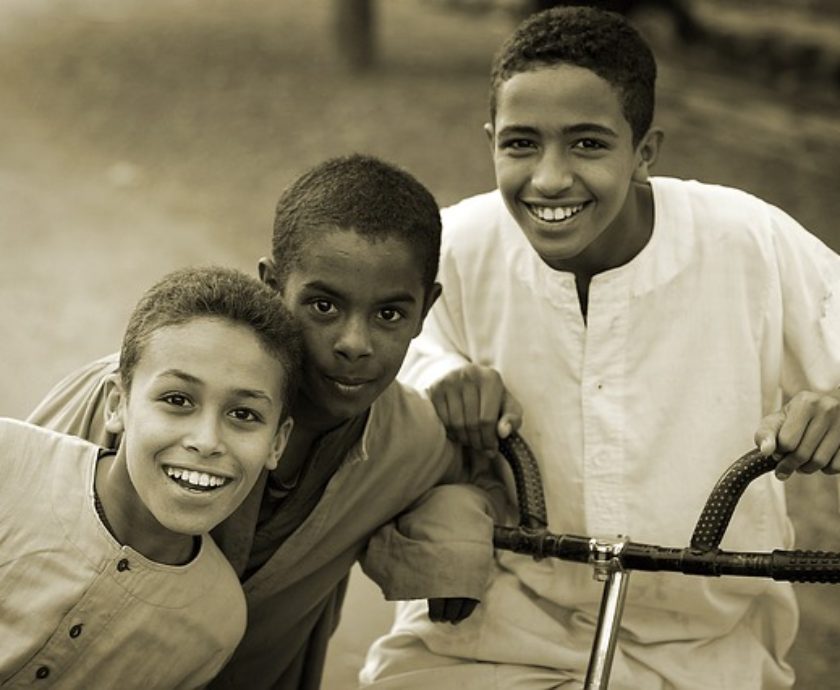Today’s blog comes from our Programme Director, Abi Begho, who shares her experience attending and participating in the Commonwealth People’s Forum in Samoa.
From 21st to 22nd October 2024, I had the privilege of travelling to Samoa to attend the Commonwealth People’s Forum (CPF), held alongside the Commonwealth Heads of Government Meeting (CHOGM). CHOGM, which brings together leaders from across the 56 Commonwealth nations every two years, serves as a vital platform for addressing pressing global issues and promoting collaboration for a better, shared future. This year’s CHOGM was guided by the theme “One Resilient Common Future: Transforming our Common Wealth.”

Running parallel to CHOGM, the CPF provided a unique space for civil society organisations to share experiences, advocate for change, and influence the Commonwealth’s strategic direction. The 2024 CPF focused on three critical themes: health justice, climate justice, and freedom of expression. I was honoured to be invited to participate in a panel discussion titled “Putting People First: Health Justice for Those Most in Need.”
Health justice is a cause close to my heart. Through our work at Lake Health and Wellbeing in St. Kitts and Nevis, we see the impact of health inequalities every day. Groups such as low-income households and persons living with disabilities face significant barriers—physical, social, and economic—to achieving optimal health. Gender disparities also contribute to unequal health outcomes for men and women. This panel provided a valuable opportunity to shed light on these issues and advocate for programmes, policies, and interventions that ensure health justice for all.
The panel I participated in was moderated by Justin Koonin, President of ACON, and featured an impressive group of speakers, including:
- Faatino Utumapu, Office Manager at Nuanua O Le Alofa
- Dr Stellah Bosire, Medical Doctor and Co-Executive Director of UHAI
- Sir Collin Tukuitonga, Associate Dean at the University of Auckland
Together, we explored pathways to achieving health equity across the Commonwealth.

I focused on the importance of empowering communities to develop and implement culturally relevant health initiatives. For instance, in St. Kitts and Nevis, projects like our EmpowHer programme, our Youth Health Advocates initiative, and our research with individuals living with chronic health conditions have empowered communities to shape solutions tailored to their needs.
I also highlighted the need for community-led organisations to have a seat at the table during policy discussions. By creating a more constructive relationship between governments and community organisations, we can ensure that health policies are inclusive and effective.
A key moment for me was when one of my recommendations became the session’s spotlight: a call for the Commonwealth to support governments in implementing health policies and interventions. This is critical in translating years of research, recommendations, and advocacy into tangible, lasting change.
Engaging with Foreign Ministers
In addition to the panel, I was invited to prepare a question for the Foreign Ministers’ Roundtable Meeting, which allows civil society representatives to engage directly with foreign ministers. While time constraints meant I couldn’t pose my question, it addressed an important concern:
The Question:
“As efforts are made to develop and implement evidence-based NCD policies, foreign and trade policies sometimes conflict with these goals. How can foreign ministers work with health ministries to ensure that trade agreements do not undermine efforts to regulate unhealthy commodities?”
Why This Question Matters
- The NCD Crisis: Non-communicable diseases (NCDs) are responsible for over 70% of deaths worldwide and are the leading cause of disability, requiring urgent cross-sector action.
- Policy Misalignment: Trade policies often promote unhealthy commodities such as tobacco, alcohol, and ultra-processed foods, exacerbating the NCD crisis.
- Economic Impacts: The financial burden of NCDs undermines national development, negating perceived economic gains from promoting harmful commodities.
Some Recommendations:
- Health-Centred Trade Policies: Incorporate clauses prioritising public health over commercial interests in trade agreements.
- Inter-Ministerial Collaboration: Strengthen partnerships between health, trade, and foreign ministries to align policies.
- Commonwealth Guidelines: Develop a framework for ensuring foreign policies support health objectives and promote health in all policies.
- Civil Society Inclusion: Maintain regular dialogue with civil society to ensure inclusive, health-focused foreign policies.
Insights from the NCD Side Event
I also attended a CHOGM side event titled “Weaving a Healthy Commonwealth Aiga for Combating NCDs and Promoting Mental Health.” Highlights included:
- Insights from the World Bank on the economic benefits of implementing evidence-based NCD policies, including a $7 return for every $1 invested in the “NCD Best Buys.” (these are a collection of recommended evidence-based NCD policies)
- A compelling contribution from the Minister for Sport in the Gambia on using sport to combat NCDs.
- A statement from Samoa’s Minister of Justice, declaring that economic activities that are harmful to the public’s health are not worth pursuing.
- A powerful reminder from the former Chairman of Samoa’s National Health Services about governments’ power to regulate companies harming public health.
These discussions underscored the importance of bold leadership and collective action to address NCDs and promote wellbeing.
Thank you!
I am grateful for the opportunity to attend the CPF and CHOGM, where I could showcase our work in St. Kitts and Nevis and advocate for change at the Commonwealth level. Platforms like CPF empower civil society to share insights, challenge norms, and hold governments accountable for prioritising health and wellbeing.
I extend my thanks to the Commonwealth Foundation for inviting me to participate and look forward to the next CPF, which will be hosted close to home in Antigua.
For more information on the decisions and actions taken by Commonwealth leaders, you can read the Samoa Communiqué. I was pleased to see leaders calling for increased efforts to tackle NCDs and am eager to see how these commitments are operationalised at local and national levels.












